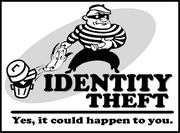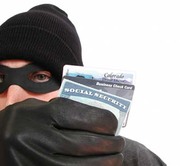HOW TO FIX YOUR CREDIT
Understanding Identity Theft
Identity theft costs businesses and consumers billions of dollars
each year. There are many common misconceptions about the potential
causes of and remedies to ID theft. Here are some important facts
that may help you understand how to protect you and your family
from fraud.
How do thieves steal identities? It may come as a surprise, but
lost or stolen wallets, checkbooks and credit cards are the number
one source of personal information used by ID thieves. Be wary of
what you keep in your wallet or purse. Credit and debit cards can
be easily cancelled, and carrying your ID or license is generally a
must. However, you may not need to carry your social security card,
birth certificate or credit cards that you do not use. If your
wallet is lost or stolen report the theft immediately to your bank
and to credit bureaus. Thieves and opportunists will act quickly so
you have no time to waste.
·Who is responsible for identity theft? Friends, neighbors,
in-home employees, family members or relatives of victims
perpetrate nearly half of all identity theft. Keep your personal
information in a safe place. A locked file cabinet or safe is a
good start. You should also shred any documents you do not need to
keep.

·Who are the victims of identity theft ?
Young adults between 25 and 34 are the most frequent victims of identity theft. Seniors tend to be more protective of personal information. Young adults also tend to have higher monetary damages when they are victims of
ID theft.
·Does using the Internet put you at risk ?
Online account management and billing often lead to early detection of fraud and lower monetary damages. It is a good idea to check your accounts
online weekly and investigate any charges that are unfamiliar to
you. Also, it is important to use different passwords for different
accounts. You should never give anyone online or offline your pin
numbers or passwords.
The Better Business Bureau offers some valuable information on
identity theft. Visit www.idsafety.net to learn more.

